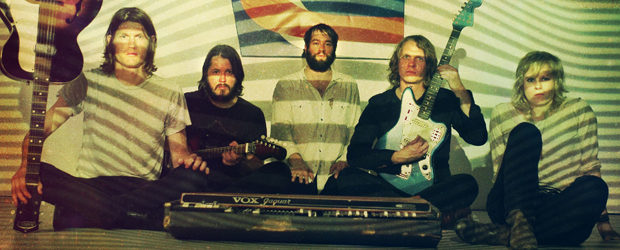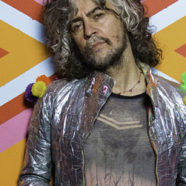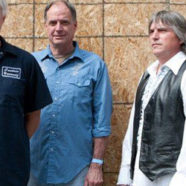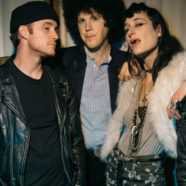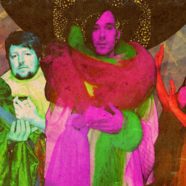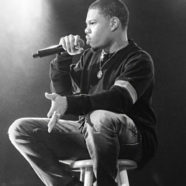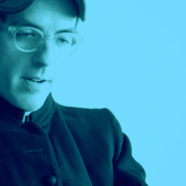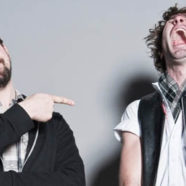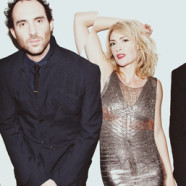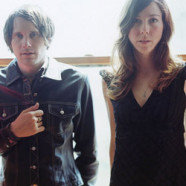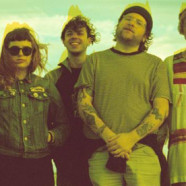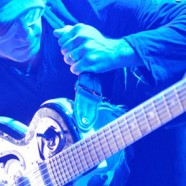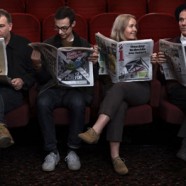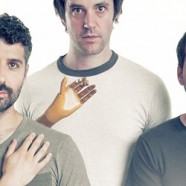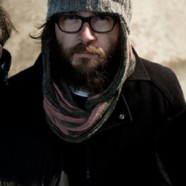In Native American culture, they were encouraged to create these songs, these chants to get them through awful times, times of peril and danger. And these songs were called death songs. They would chant these songs if they were about to die or go into the afterlife or their village was wiped out. That’s the other side of the coin for this record and why we call it Death Song. These are our songs that we’re singing during this tumultuous crazy time and the mantra above is incorporated into that.
BY ERIN MALYSA
Texas is home to armadillos, BBQ, 10-gallon hats and strangely enough, psychedelic rock. Over 10 years have passed since seminal Austin-based psych rockers The Black Angels released their first album, Passover, but this deliciously trippy band continues to crank out incredibly deep music filled with reverb, melody, and clairvoyant improvisational beauty. With a name derivative of the Velvet Underground track “The Black Angel’s Death Song,” the band’s newest and fifth LP Death Song is a tribute to a darkly obscure Native American tradition that feels strangely apropos in our apocalyptic political age. Chicago INNERVIEW spoke with lead singer/bassist Alex Maas on a sunny spring day to talk about the dark ideas behind Death Song.
Chicago INNERVIEW: Death Song is the band’s fifth full-length album. Tell me about recording it, constructing it, and the four years in between albums.
Alex Maas: We spent the last four years compiling and writing songs…We wrote a bunch of music, about 45-50 songs, so that we could build a cohesive body of material. We also did a little piece for CNN, a song for a documentary about legalization of marijuana in Colorado. I really look at our last album Clear Lake Forest, which was only seven songs, as a full album. It had some of my favorite songs on it, a different direction for the band but still great. So we’ve been busy. Death Song isn’t only a quote from The Velvet Underground, but it comes directly from Native American culture. Creating a death song was part of the grieving process during a tumultuous and crazy time, which is what we’re living in now. So it felt right to title the album after this Native American custom.
Chicago INNERVIEW: There is a quote on your Facebook page from April 21 that reads: ‘We encourage you to rethink your preconceived notions, question authority, and create other methods for survival.’ Do you think this sums up the spirit and essence of the band? Or is it a response to the world and culture at large?
Alex Maas: Lyrically, we’ve always tried to ask questions. Those are one in the same. It’s our mantra. It’s absolutely how we perceive. It’s what we want to do with our music. I’ve always been fascinated with Native American culture, the process in which they write, the chants, the storytelling. These stories are passed down from the generations and that’s what they’re doing, encouraging different methods of survival. In Native American culture, they were encouraged to create these songs, these chants to get them through awful times, times of peril and danger. And these songs were called death songs. They would chant these songs if they were about to die or go into the afterlife or their village was wiped out. That’s the other side of the coin for this record and why we call it Death Song. These are our songs that we’re singing during this tumultuous crazy time and the mantra above is incorporated into that.
CI: On the album there are guitar solos, but they almost feel more improvisational — like they could go in any direction and change the song to a new key, new tempo, new place. Almost like jazz. Do the songs come from jam sessions or do band members come in with parts of songs written?
AM: Both ways. Ideas come in and sometimes someone picks up a bass guitar — because we all float around on different instruments — and just plays. Sometimes those can be one in the same, construct it and deconstruct it. Two chords per song usually. Songs do take on a life of their own, like children. They want to be something else.
CI: There’s a lot that can feed into creativity. You extoll a generous amount of energy when creating and you can have so many influences to recharge, like eating a wonderful meal or watching a film or a documentary. What else feeds into your creativity?
AM: I think you hit on some of the major ones. For me, not being a trained musician, I get inspiration from all over the place like this conversation I’m having with you can lead to something. So conversations or films or taking a trip with your family or something terrible happening in the news. I keep bringing up the toxicity of the world and how it’s impacting me personally and people I know. There are so many factors that go into inspiration for me. I’m just trying to make sense out of this fucking crazy world.
THE BLACK ANGELS
WITH A PLACE TO BURY STRANGERS
MAY 11 @ THALIA HALL
9 PM LISTEN
$52+ TICKETS




